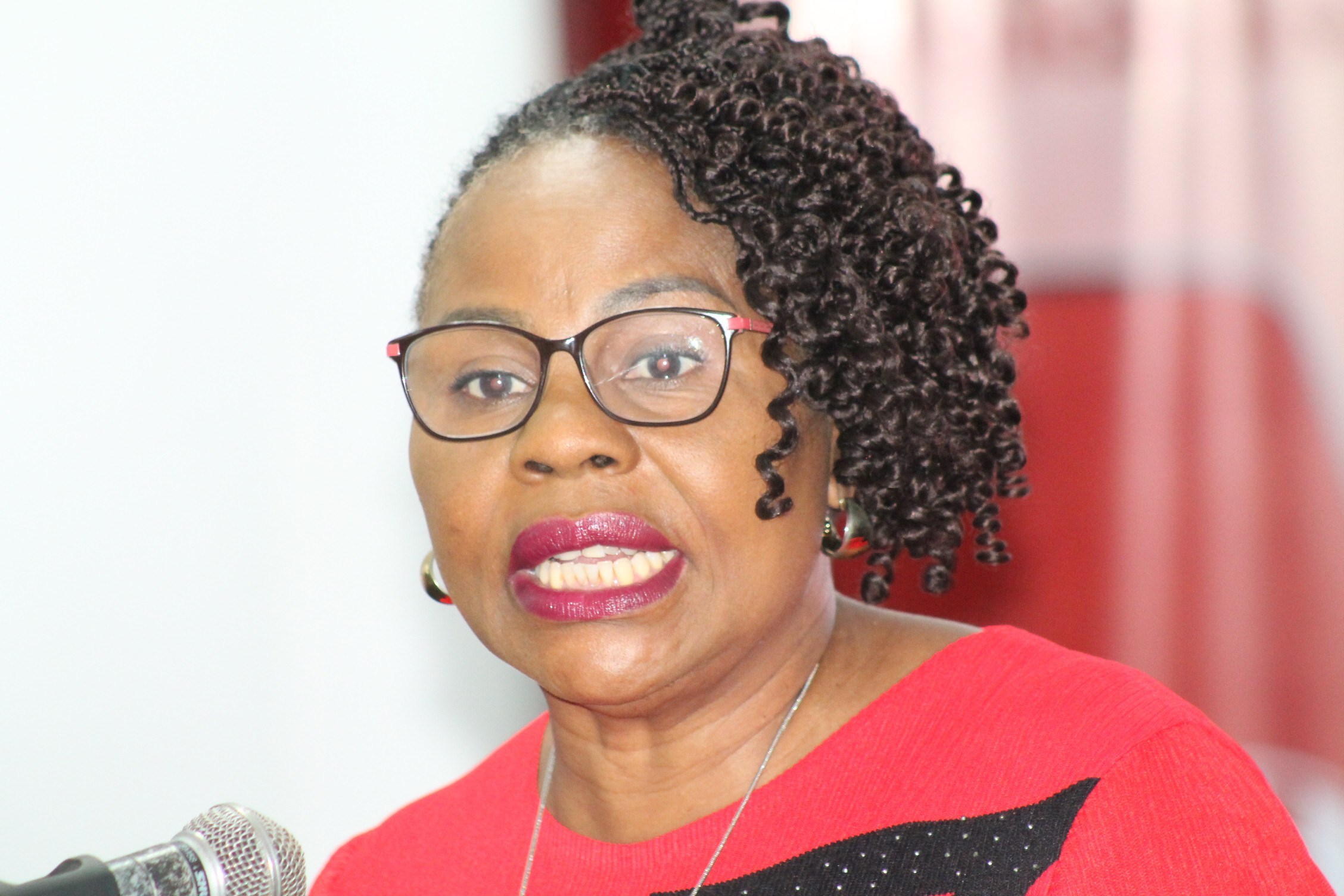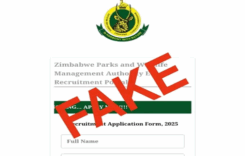Information Minister Monica Mutsvangwa
The government on 5 July 2019 gazetted the Freedom of Information Bill, which seeks to repeal the Access to Information and Protection of Privacy Act (AIPPA) and to give effect to Section 62 of the Constitution which provides for the right to access to information as enshrined in the Declaration of Rights.
The Freedom of Information Bill is one of three expected to come out of the repeal of AIPPA, along with the Protection of Personal Information Bill and Zimbabwe Media Commission Bill.
But media watchdogs and legal experts have cried foul saying government is insincere and has missed a great opportunity to do authentic media reforms acceptable locally and globally.
What does the bill set out to do?
It sets out the procedure of access to information held by public institutions or information held by any person, which is necessary for the exercise or protection of a right.
It sets out considerations for making available on a voluntary basis by entities, certain categories of information thereby removing the need for formal requests for such information.
It sets out the scope of limitations on the right of access to information, the rights of third parties, the role of principal officers of entities and information officers in its implementation, procedures for internal and court appeals in respect to requests for access to information and the time limits within which these processes must be carried out.
It sets out additional functions of the Human Rights Commission with respect to the right of access to information, which are to be exercised in the normal course of its role as the guardian of human rights.
Part Two of the Bill which deals with providing access to information, bestows in Clause 4, a duty on entities to maintain the information of entities in a manner that facilitates the exercise of the right to access information.
Clause 5 of the Bill requires public entities, public commercial entities and holders of statutory bodies to disclose information which is in the interest of the public accountability and in the interest of protection of a right.
Clause 6 states that the Act will not apply to information from Cabinet and its committees, with respect to judicial functions.
Part Three deals with the process of requesting for access to information.
In the event the request relates to information necessary to safeguard the life or liberty of a person, the information officer’s determination whether to grant access must be made within 48 hours.
The Bill also requires responsible persons to make annual reports to the Human Rights Commission on the number of requests received, granted, refused or appealed.
Part Five of the Bill sets out various grounds upon which a request for access may be refused for the purpose of protecting other rights and interests, which may be superior to the right of access to information.
Clause Six of the Bill repeals AIPPA (Chapter 10:27).
Does the Bill go far enough?
Media watchdog Misa-Zimbabwe in statement in response to the gazette Bill says the Bill doesn’t go far enough. Misa’s argument goes as follows:
The Bill in its current state fails to give effect to either the letter or spirit of the right to access information found in Section 62 of the Constitution.
The Bill is different from the draft version shared with and discussed by stakeholders during engagement meetings held by the Ministry of Information Media and Broadcasting Services in December 2018 and March 2019. “It is a total departure from most of the positions agreed upon between the ministry and media stakeholders,” Misa says.
The gazetted Bill has similarities with the condemned and outgoing AIPPA unlike the all-stakeholders draft which closely resembled the African Union’s Model Law on Access to Information.
Few of the recommendations submitted by civil society and other access to information activists were incorporated into the gazetted Bill. “This shatters government’s narrative that this Bill is the result of a valid, wide, and balanced consultative process.”
Veritas – a watchdog that provides information on the work of the Courts, Parliament of Zimbabwe and the Laws of Zimbabwe – has accused government of behaving badly saying the gazetted Bill contains none of the contributions from media stakeholders and contains marked differences from ministerial draft Bill circulated previously. (http://veritaszim.net/node/3583)
What other issues does the Bill raise?
It puts in place voluntary mechanisms of disclosing data and information controlled by public institutions. Private institutions, on the other hand, have the discretion to voluntarily disclose any information within their control. According to Misa this means the right to access information will apply differently to citizens and differently to non-residents and non-citizens. “Yet the right to access information is a fundamental right enshrined in the Universal Declaration of Human Rights, and must therefore, be applied equally to all people.”
Considering the amount of information controlled by private entities such as mobile network operators, medical service providers, private financial institutions and property developers, they should also be compelled to disclose information, Misa says.
Just like AIPPA, the Bill also sets out the scope of limitations on the right to access information. Some of these limitations are reasonable, for example, the right to access information may not be relied on to access organisational trade secrets, according to Misa.
“However, some limitations are not justifiable in an open and democratic society that Zimbabwe aspires to be. One such limitation is the one on access to information on government borrowing.”
The Bill also sets out additional functions assigned to the Zimbabwe Media Commission (ZMC). The ZMC, will in terms of this law, be responsible for overseeing the fair application and exercise of the right to access information in Zimbabwe. Furthermore, the ZMC will receive and decide appeals against refusal of requests for access to information.
The ZMC has been assigned this function on the strength of Section 249(1)(f) of the Constitution which says one of the ZMC’s functions is “to ensure that the people of Zimbabwe have fair and wide access to information.”
On the surface, according to Misa, this is a valid argument.
“However, it is more favourable to give the responsibility to oversee the enjoyment and exercise of the right to access information to the Zimbabwe Human Rights Commission (ZHRC). Indeed, this was the case in the ministerial draft of the Freedom of Information Bill.
“In terms of Section 243(1)(a) – (d) and (f) of the Constitution, the ZHRC is tasked with the promotion, protection, development, and attainment of human rights and freedoms. These human rights and freedoms indubitably include the right to access information.”
The right to access information applies to everyone and goes beyond the media fraternity. MISA Zimbabwe contends that placing the administration of such an important right under a Commission dedicated specifically to the promotion of media freedoms and rights will narrow the exercise and enjoyment of the right to access information.
MISA Zimbabwe recommends that the position espoused in the ministerial draft be restored.
What did media stakeholders expect?
Media stakeholders expected that the process of media reform is as transparent as possible. Government seems to have reneged on this in the gazetted draft.
Following the enactment of the new Constitution in 2013, there was optimism that the government of Zimbabwe would fulfill its obligations of expeditiously aligning legislation across the board to the constitution. The media sector saw this as an opportunity to deal with laws that stood in the way of their professional and ethical conduct since the country’s independence in 1980. Chief among these laws was the Access to Information and Protection of Privacy Act (AIPPA). Despite taking long to fulfill this hope the gazetted draft “is disappointing” according to Misa.
Jacqueline Chikakano, a Media lawyer, in a paper presented at the media reforms roundtable argued that access to information (ATI) and media regulatory framework must be separate. The background of her argument wam that AIPPA regulates three aspects (ATI, Media Freedom and Protection of privacy/personal information).
She said international best practice and the current trend was to separate Media Regulation from ATI framework. She argued that More than 22 African countries have ATI laws and only two, Zimbabwe and Ethiopia, have a combined media regulation and ATI legal framework;
ACHPR, the African Union (AU) human rights promotional body, is advocating for a stand-alone ATI law through its ACHPR Model law;
South Africa, whose Constitution [including on ATI provision] is similar to Zimbabwe’s has a separate stand-alone ATI law. It also has a stand-alone law on protection of personal information.
The bill is not clear on internet shutdowns such as happened in January this year during countrywide anti-government demonstrations which raised concerns on its implications on freedom of expression and ATI and on how these rights should be safeguarded at law.
What is the way forward?
The Bill will be tabled in parliament for discussion.
Media lawyer, Kuda Hove says: “The media needs to follow up closely on the law reform process and report these discrepancies to members of the public so that people understand what has been done so far to reform laws and how much work is left in this regard. The media’s 4th estate role is more important than ever in this process. The media is needed to hold the government to account on its efforts to reform and align laws to the Constitution?
All stakeholders should now have a common voice on media legislation ideals for the purpose of the parliamentary hearings on the Bill, and engagement/lobbying of MPs, as individuals or as portfolio committees, to ensure that the reform process is done satisfactorily.
Do you want to use our content? Click Here












